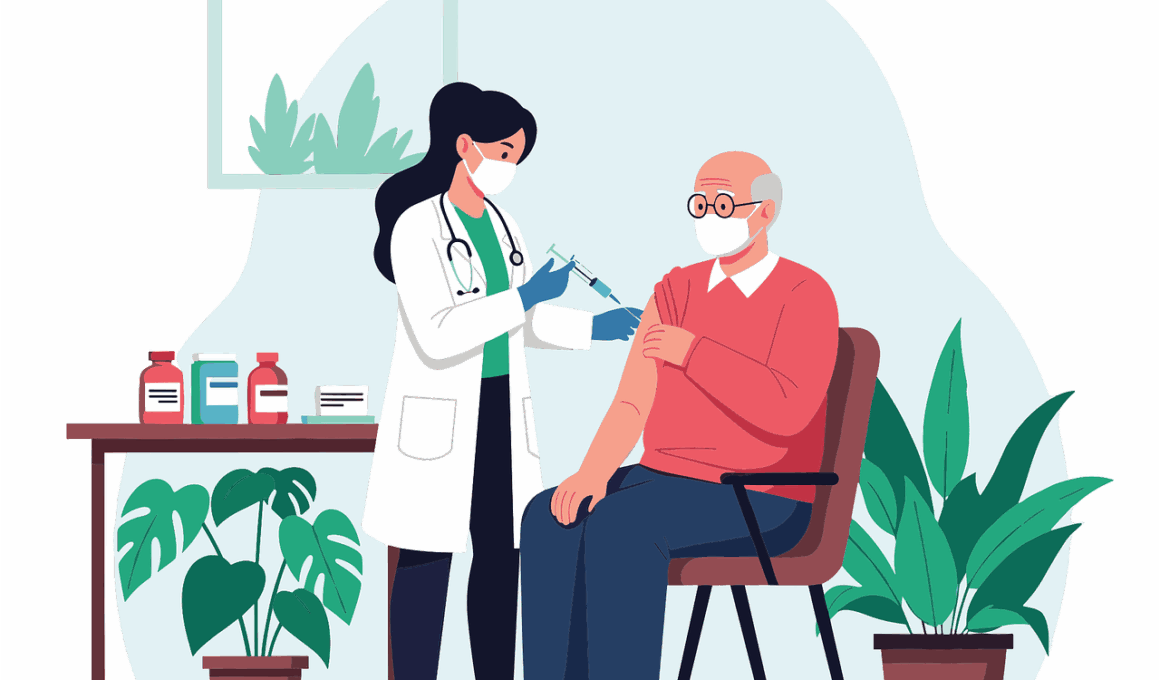Tracking and Scheduling Vaccinations for Senior Cats
Proper vaccination schedules for senior cats are crucial for maintaining their health and well-being. As cats age, their immune systems weaken, making them more susceptible to various diseases that vaccinations can prevent. Regular vet visits are essential to keep up with these vaccinations and monitor your senior cat’s health overall. Vet professionals recommend a tailored vaccination plan that is adapted to your cat’s specific needs, age, lifestyle, and any previous health issues. It’s important to understand the core vaccinations that senior cats require, along with non-core vaccinations based on their lifestyle. Essential vaccinations include rabies and feline distemper (FVRCP). You should also consider the benefits of vaccinations such as feline leukemia (FeLV) depending on your cat’s exposure risks. Consult with your veterinarian to ensure a comprehensive approach to care, addressing whether your senior cat needs booster shots and how often they should be administered. Keeping an up-to-date vaccination record can help ensure your cat stays healthy and receives appropriate vaccinations on time.
Vet appointments play a vital role in monitoring vaccination schedules for senior cats, promoting their health and longevity. Pet owners should establish a routine for these visits, allowing veterinarians to assess their senior cats’ overall health and recommend vaccines as necessary. Yearly checkups are generally advised for senior cats. During these appointments, the vet will review your cat’s vaccination history and make recommendations for any needed shots. Having a reliable schedule for vaccinations is important; you can create a calendar marking upcoming vaccination dates. Consider including other critical dates, such as dental check-ups or weight assessments, on this calendar for a more holistic approach. You can also collaborate with your vet to ensure your cat’s vaccination schedule aligns with any medical treatments or changes in health status. Keeping your cat’s vaccination needs front and center can relieve some of the stresses involved in managing their healthcare. Don’t hesitate to ask your veterinarian any questions you might have regarding vaccines, side effects, or best practices for your aging feline companion.
Understanding Vaccination Types
Understanding the various types of vaccinations available for senior cats is essential for every pet owner. Vaccinations are generally classified into core and non-core vaccinations. Core vaccinations are necessary for all cats, including senior cats, as they protect against severe diseases such as feline viral rhinotracheitis, calicivirus, panleukopenia, and rabies. Non-core vaccinations may be administered based on individual health, lifestyle, and geographic location – they target diseases like feline leukemia or Bordetella. Another significant aspect of vaccinations is the frequency at which they need to be administered. With some core vaccines given every three years, it’s essential to discuss with your veterinarian the appropriate timing for your senior cat. Additionally, getting your cat vaccinated helps not just the individual cat but also contributes to community health by preventing disease spread. Understanding these aspects of vaccination can empower you as a pet owner, enabling you to make wiser health decisions for your aging cat. This ensures your feline companion is protected throughout their golden years.
When considering your senior cat’s vaccination schedule, awareness of potential side effects is essential. Vaccinations can sometimes cause mild reactions, such as soreness at the injection site, lethargy, or a decrease in appetite. In most cases, these side effects resolve on their own within a day or two. Monitor your cat closely after vaccination, making sure they are recovering well. However, serious reactions are rare and must be addressed promptly. Signs of a more severe reaction may include difficulty breathing, swelling, or persistent vomiting. Always consult your vet if any unusual symptoms persist after vaccination. Keeping a record of your cat’s reactions to past vaccinations can help your veterinarian make more informed decisions regarding future vaccinations. Additionally, don’t hesitate to communicate any concerns about your cat’s health or pre-existing conditions that may complicate vaccination schedules. Your active involvement in your cat’s health care allows for a better understanding of how vaccinations can enhance their quality of life. This helps your senior cat remain comfortable and well-cared for as they age gracefully.
Adjusting Vaccination Schedules
It’s crucial to adjust vaccination schedules based on your senior cat’s unique health status and needs. Aging cats may have health issues that make them more susceptible to diseases or alter their response to vaccinations. Be prepared for your vet to suggest a modified vaccination schedule that best supports your cat’s overall health. Factors such as chronic kidney disease, diabetes, or heart issues might lead your veterinarian to recommend fewer vaccinations to reduce stress on your cat’s immune system. It’s essential to communicate any changes you notice in your cat, as these responses impact vaccination decisions. Through regular veterinary appointments, you can work together to create the most appropriate plan for your cat. Additionally, much of the information regarding immunizations evolves, meaning your veterinarian may adapt recommendations based on new research or guidelines over time. Keeping open lines of communication with your vet can help clarify any uncertainties regarding your senior cat’s vaccination needs and ensure they’re protected from preventable diseases with a personalized care approach.
One effective way to manage your senior cat’s vaccination schedule is to utilize technology. Many pet owners are now taking advantage of mobile apps or online tools designed for tracking pet health records and schedules. These tools often allow you to set reminders for vaccinations, vet appointments, and even medication schedules. By utilizing these platforms, you can simplify the process of keeping your senior cat’s health organized and easily accessible. Moreover, these apps can provide useful information about pet health, such as advice on diet or exercise tailored to older cats. Consequently, the information can be beneficial for understanding your cat’s vaccination requirements. In addition to technology, consider investing in a physical pet health journal or calendar where you can document your senior cat’s vaccination history and health changes consistently. Staying organized and proactive with your senior cat’s health ensures they remain happy, healthy, and well-protected throughout their twilight years. By doing so, you contribute significantly to their length and quality of life, resulting in a more fulfilling companionship.
Common Questions and Concerns
Pet owners often have many questions and concerns regarding vaccinations for senior cats. One common question is whether it’s still necessary to vaccinate older cats who have been previously vaccinated. In most cases, the answer is yes; senior cats still require vaccinations to maintain their immunity against preventable diseases. Another concern revolves around safety, as some owners wonder if vaccinations might cause harm to their aging cats. While there is a minimal risk of side effects, the benefits of vaccinations in preserving overall health typically outweigh any potential risks. It is vital to maintain open communication with your veterinarian about any specific concerns you may have regarding your senior cat’s health or vaccination needs. Your vet can provide personalized advice to help address any questions or anxieties you may have. Understanding the value of vaccines and employing a tailored approach will contribute to enhancing your senior cat’s quality of life. With proper routine care, including vaccinations, you can foster a healthier, happier, and more active life for your cherished feline companion.
As a responsible pet owner, providing proper care for your senior cat hinges on keeping their vaccinations up-to-date. Vaccinations play an essential role in disease prevention and maintaining overall health in aging cats. By following the recommendations set forth by your veterinarian and utilizing available resources, you can create a comprehensive vaccination plan that significantly contributes to your senior cat’s well-being. Remember to schedule regular vet visits, maintain an organized vaccination record, and stay proactive in adjusting your cat’s vaccination schedule as needed. Your efforts are invaluable to enhancing their quality of life, connecting you more deeply with your aging feline friend. Keeping your senior cat’s health in focus requires dedication and care; staying informed and active in your cat’s health management ensures you provide them with the best possible life. There’s significant peace of mind that comes with knowing you’ve taken all the necessary steps to safeguard your beloved pet’s health. By committing to a structured vaccination regimen, you’re ensuring your senior cat enjoys a comfortable, extended life filled with joy and companionship.


